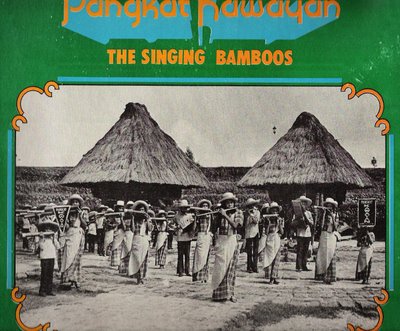
I don't know much about Charlie Gracie I must admit. An Elvis clone singing songs that sound VERY familiar indeed . How he got away with it is anybody's guess!
Wikipedia says -
"Gracie performed at weddings, local restaurants, and parties, and on local radio and television. He also won regional talent contests.
The owner of Cadillac Records, Graham Prince, heard one of Gracie's early radio performances, contacted the young musician and signed him to a recording contract. This association yielded the single, "Boogie Woogie Blues" backed with "I'm Gonna Sit Right Down And Write Myself A Letter". The record led to Charlie's first appearance on Bob Horn's American Bandstand television program. (This was four years before Dick Clark became the host). After cutting two more singles for Cadillac, "Rockin´ ´n´ Rollin´" being one of the titles (and remember, this was in 1952!) Charlie moved on to 20th Century Records where he put out another four sides. The discs he made embraced a wide variety of styles: jump blues, gospel, and country boogie with the influences of Big Joe Turner, B.B. King, Louis Jordan, Roy Acuff, and Hank Williams.
By 1956, Philadelphia had given birth to the new Cameo record label. Its founders, in search of a strong talent, signed Gracie later that year. With a $600 budget, this new union went into the recording studio to record "Butterfly" backed with "Ninety Nine Ways". It became a hit record, reaching the #5 on the Billboard Hot 100 chart. Charlie received a gold disc for the two million plus sales. His only other Top 40 hit was with a song entitled "Fabulous" the same year, which reached #16. Two other substantial sellers followed; "Wandering Eyes", his third Billboard Top 100 hit, which peaked at #71, and "Cool Baby". The financial success of these hits bankrolled the Cameo label, which became a dominant force in the music industry for several years.
Gracie's personal appearances grew until he performed and headlined some of the biggest venues of that time: Alan Freed's rock and roll shows at the Brooklyn Paramount, The Ed Sullivan Show, American Bandstand and the 500 Club in Atlantic City. He appeared in the 1957 film, Jamboree, and toured with Chuck Berry, The Everly Brothers, Bo Diddley and his close friend, Eddie Cochran."
Charlie Gracie - Just Lookin'
Clearing out the shed today and came across a pile of old 78's. Some were cracked and broken but others like this Nat King Cole version of Love Letters still had some life left in them. I much prefer the Ketty Lester version but this has a certain charm despite the syrupy strings. Just him and his trio seemed just perfect but his later recordings leave me cold.
Wikipedia says -
Nathaniel Adams Coles was born in Montgomery, Alabama, on Saint Patrick's Day in 1919[1] (some sources erroneously list his birth year as 1917). At the age of 4,[2] his family moved to Chicago, Illinois. There his father, Edward Coles, became a Baptist minister. Cole learned to play the organ from his mother, Perlina Coles, the church organist. His first performance, at age four, was of "Yes! We Have No Bananas". He began formal lessons at the age of 12, eventually learning not only jazz and gospel music but also European classical music, performing, as he said, "from Johann Sebastian Bach to Sergei Rachmaninoff".
"Cole had three brothers - Eddie, Ike, and Freddy. Cole's sister, Joyce Cole, married the famous art supplier, Robert Doak, of Robert Doak & Associates, Incorporated. The family lived in the Bronzeville neighborhood of Chicago. Cole would sneak out of the house and hang around outside the clubs, listening to artists such as Louis Armstrong, Earl Hines, and Jimmie Noone. He participated in Walter Dyett's renowned music program at DuSable High School.
Inspired by the playing of Earl Hines, Cole began his performing career in the mid 1930s while still a teenager, adopting the name "Nat Cole". His older brother, Eddie Cole, a bass player, soon joined Cole's band, and they made their first recording in 1936 under Eddie's name. They were also regular performers at clubs. In fact, Cole acquired his nickname "King" performing at one jazz club, a nickname presumably reinforced by the otherwise unrelated nursery rhyme about Old King Cole. He was also a pianist in a national tour of Broadway theatre legend Eubie Blake's revue, "Shuffle Along". When it suddenly failed in Long Beach, California, Cole decided to remain there. He would later return to Chicago in triumph to play such venues as the famed Edgewater Beach Hotel."
Nat King Cole - Love Letters
























